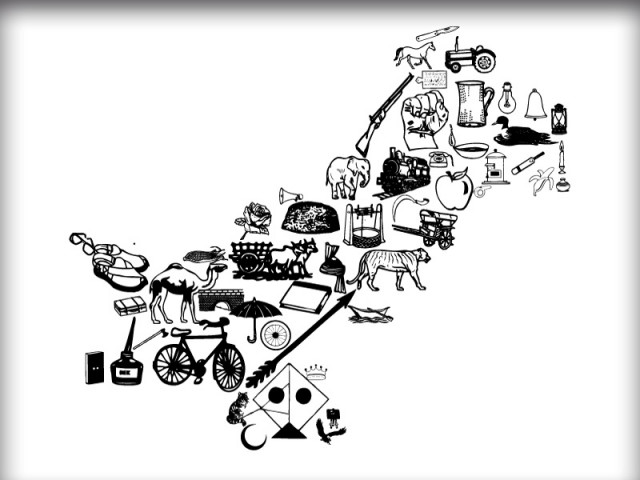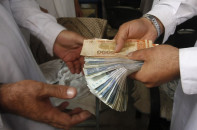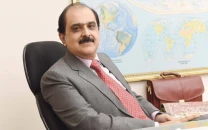Women’s issues: Who will be fair to the fairer sex?
PML-Q, PML-N, PTI emphasise greater political participation by women.

Women’s issues: Who will be fair to the fairer sex?
According to a 2012 survey by the World Economic Forum, Pakistan is still considered to be one of the worst places in the world to be a woman. With a total of 37 million registered female voters, the policies adopted by political parties to ensure the rights and progress of women might play a key role in the outcome of the elections.
Therefore, The Express Tribune performed a comparative analysis of policies outlined for women empowerment in mainstream political parties’ manifestos in an attempt to understand how each would contribute towards equality and greater participation by women.
It should also be noted that the number of women contesting the upcoming elections has remained unchanged or gone down in the case of a few parties. 36 female candidates have been awarded tickets for 272 general NA seats this year, in comparison to the 34 candidates in 2008 and 38 in the 2002 elections.
According to the Free And Fair Election Network (FAFEN) Twitter updates, PPP has the highest number of female candidates at 7.0%, followed by the PML-F (6.9%), APML (4.8%), PML-N and PML-Q (3.7%) each, ANP (3.5%), MQM (3.3%) and the PTI ranking the lowest at 2.2%.
PPP-P

Some of the current successes of the PPP regime, such as the Benazir Income Support Program, and the trend of appointing women to high-level decision making positions, is clearly being capitalised on. However, despite still having the highest number of female candidates on general seats this year, the number has reduced from 15 in 2008 elections to 11 candidates right now.
PML-Q, PML-N, PTI

All these parties emphasise greater political participation by women along with a commitment to ensure protection and independence for women. However, most of the PML-Q’s provisions seem to be missing concrete action steps. For example, the manifesto mentions closing the education gender gap through “behavioral change” and making education for girls an “acceptable social norm”. But no detail has been given about specific ways to bring about that change.
In comparison, PML-N and PTI manifestos offer more concrete solutions. For example, PML-N mentions greater economic participation by women through provision of micro-credit schemes, day care facilities and increased job quotas in certain sectors. Similarly, PTI mentions specific actions such as restoring the provincial and federal ministries for women, setting up one step “Insafgahs” at Union Council level to provide economic and legal aid to women and introducing a 20% job quota for women.
MQM

MQM is the only party that does not have a section dedicated to women empowerment. Instead the section titled ‘Human Rights’ addresses policies pertaining to women, minorities and children. While a great degree of emphasis is laid on social justice and eliminating exploitative practices such as karo kari and vani through legislation, no concrete steps have been outlined to promote equal education and specific health care for women.
ANP

Despite having its strongholds in some of the most conservative Pakhtoon majority areas in Pakistan, the ANP has one of the most holistic and concrete agendas for womens’ inclusion in all affairs from political offices to economic emancipation. It is also the only party that talks about reclaiming the damage done by extremist elements, such as rebuilding girls’ schools that have been destroyed. The most notable aspect is the attention to small but effective details. For instance, the manifesto mentions eliminating the need for a male guardian for adult women who are applying for national identity cards, which reflects the party’s commitment to uplift women as independent decision makers.
JI

JI underscores the importance of quality education, flexible work conditions, inheritance and divorce laws for women in compliance with Shariah. However the manifesto makes no mention of political representation by women, and the party’s decision to not grant any tickets to female candidates in the upcoming elections seems to be in line with that omission.
According to human rights experts, regardless of which party comes to power, the dismal position of the country on the gender equality front poses a huge challenge. Concrete legislative and policy changes will be required at all levels in order to safeguard women’s basic rights and liberties in the country.
Published in The Express Tribune, May 7th, 2013.



















COMMENTS
Comments are moderated and generally will be posted if they are on-topic and not abusive.
For more information, please see our Comments FAQ